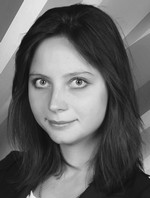School physical education problem-based learning model
Фотографии:
ˑ:
Fizicheskaya kultura: vospitanie, obrazovanie, trenirovka №3-2017, pp.32-33
Postgraduate A.A. Neklyudova
Tula State Pedagogical University named after L.N. Tolstoy, Tula
Objective of the study was to give theoretical grounds for and practically develop an efficient school physical education problem-based learning model. For the purposes of the problem-solving school physical education model design, we identified its key implementation conditions including the role of a school teacher, his/her professional competences and skills and the practical problems he/she normally faces. The physical education problem-based learning model was designed to include the following age-specific constituent models: Model 1 for the primary school age with the education dominated by monologue- and dialogue-driven forms and games to provide extra motivations for the trainees; Model 2 for the middle school age giving an increased priority to the problem-based own research activity with the practical physical actions supported by a prudent survey system; and Model 3 for the senior school age making a special emphasis on the self-reliant research and project components of the problem-based learning activity with the trainees required to independently identify and solve the problems followed by the teacher-assisted learning and discussions of the practical basics of the relevant physical actions plus a variety of tactical aspects of the teamwork in the relevant sport disciplines.
The above three practical models may be viewed as constituents of the frame physical education problem-based learning model designed for the long-term successive education process designed to produce a physically educated personality. The physical education problem-based learning model gives a due priority to a harmonised interaction of a school teacher with the trainees and their families, with the age-specific physical practices being designed to give certain degrees of freedom to the children in the class and off-class physical education, with an increasing priority given to the self-reliant physical progress.
Keywords: problem-based learning, school age, individual physical culture, professional competency, education technology.
References
- Bleer A.N., Pavlov S.E., Kovylin M.M., Pavlova T.N. Zakony adaptatsii i nekotorye printsipy sportivnoy pedagogiki [Laws of adaptation and some principles of sports pedagogics]. II Mezhdunar. nauch.-prakt. konf. «Fiziologicheskie i biokhimicheskie osnovy i pedagogicheskie osnovy adaptatsii k raznym po velichine fizicheskim nagruzkam» [Proc. II Intern. Scientific-practical. Conf. "Physiological and biochemical and pedagogical basics of adaptation to different physical loads"]. Kazan, 2014, pp. 190-192.
- Bondarchuk A.P. Sposoby postroeniya periodov razvitiya sportivnoy formy [Methods of design of fitness shaping periods]. Nauka i sovremennost, 2015, no. 1 (3), pp. 35-63.
- Volkov V.N. Sportivnaya trenirovannost: paradoksy diagnostiki [Physical fitness: paradoxes of diagnostics]. Teoriya i praktika fiz. kultury, 2002, no. 10, pp. 10-12.
- Vorobev A.N. Tyazheloatleticheskiy sport. Ocherki po fiziologii i sportivnoy trenirovke. Izd. 2-e [Weightlifting sport. Essays on physiology and sports training. 2nd ed.]. Moscow: Fizkultura i sport publ., 1977, 255 p.
- Zatsiorskiy V.M. Fizicheskie kachestva sportsmena [Athlete's physical qualities]. Moscow: Fizkultura i sport publ., 1966, 250 p.
- Pavlov A.S., Petrov A.A., Pavlov S.E. Zakony «perenosy trenirovannosti» v khokkee [Laws of "transfer of fitness" in hockey]. Olimpiyskiy byulleten no. 16 / Comp. N.Y. Melnikova, A.V. Treskin, N.S. Leontyeva, A.Y. Nikiforova, L.S. Leontyeva. Moscow: Chelovek publ., 2015, pp. 167-170.
- Pavlov S.E. Adaptatsiya [Adaptation]. Moscow: Parusa publ., 2000, 282 p.
- Pavlov S.E., Pavlova T.N. Tekhnologiya podgotovki sportsmenov [Athlete's training technology]. Moscow region, Shchelkovo: Markhotin P.Y. publ., 2011, 344 p.
- Platonov V.N. Adaptatsiya v sporte [Adaptation in sports]. Kiev: Zdorov’ya publ., 1988, 216 p.
- Platonov V.N. Sistema podgotovki sportsmenov v olimpiyskom sporte: obshchaya teoriya i ee prakticheskie prilozheniya [Olympic training system: general theory and its practical applications]. Moscow: Sovetskiy sport publ., 2005, 820 p.
- Pianzin A.I., Drandrov G.L., Medvedev V.N. Vzaimosvyaz komponentov trenirovochnoy nagruzki razlichnoy napravlennosti s izmeneniyami parametrov sostoyaniya kvalifitsirovannykh legkoatletov [Interrelation of components of multi-purpose training load with changes in parameters of skilled track and field athletes' condition]. Teoriya i praktika fiz. kultury, 2000, no. 3, pp. 54-57.
- Pavlov S.E. Fiziologicheskie osnovy podgotovki kvalifitsirovannykh sportsmenov. Ucheb. posobie dlya studentov vuzov fizicheskoy kultury [Physiological basics for skilled athletes' training. Study guide for students of physical education institutions]. MSAPC publ., Malakhovka, 2010, 88 p.
- Folbort Y.V. Sistema cheredovaniya utomleniya i otdykha kak fiziologicheskaya osnova trenirovki [Fatigue and rest alternation system as physiological basis of training]. Vrachebny kontrol v protsesse sportivnogo sovershenstvovaniya [Medical control in sports improvement process]. Moscow: Nauka publ., 1952, p. 61.
- Kholodov Zh.K., Kuznetsov V.S. Teoriya i metodika fizicheskogo vospitaniya i sporta. Ucheb. posobie dlya studentov vuzov fiz. kultury [Theory and methods of physical education and sports. Study guide for university students]. Moscow: Academia publ., 2000, 476 p.
- Costill D.L., Thomas R., Robergs R.A., Pascoe D., Lambert C., Barr S., Fink W.J. Adaptations to swimming training: influence of training volume. Medicine and Science in Sports and Exercise. – 1991. – N 23. – P. 371-377.
- Fry, R.W. Periodisation and the prevention of overtraining / R.W. Fry, A.R. Morton, D. Keast // Can J Sport Sci. – 1992. – N 1 7 (3). – P. 241-248.
- Kuipers, H. Overtraining in elite athletes. Review and directions for the future / H. Kuipers, H. Keizer H. // Sports Med. – 1988. – N 6 (2). – P. 79-92.
- Lehman M. Overtraining in endurance athletes: a brief review / M. Lehmann, C. Foster, J. Keul // Med Sci Sports Exerc. – 1993. – N 25 (7). – P. 854-862.
- Portman, M. Planification et Periodlsation des Programmes d'Entrainement et de competition / M. Portman // Track and field journal d l’athletisme (Ottawa): Summer. – 1986. – N 30. – P. 5-15.



 Журнал "THEORY AND PRACTICE
Журнал "THEORY AND PRACTICE